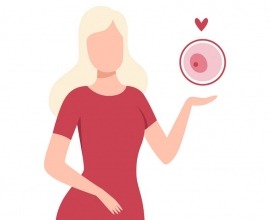The Psychology Of Sperm Donation
Why do men choose to donate sperm? There are certainly more reasons that the obvious answer of financial gain. In an age where more and more couples are turning to IVF treatment for conception, the demand for sperm and egg donations is higher than ever. This means both private and public clinics are seeking ways to entice males (usually between the ages of 20-40) to donate, and to do so, need to understand what makes donors tick. By understanding the motivations of sperm donors, clinics can better market and raise awareness to men, and hopefully attract more to their clinics. It should also be recognised that due to varying laws and legislation regarding donation and IVF in different countries, motivations and driving forces alter across borders.
Money
Firstly we should address the obvious factor for choosing to donate sperm- money. It is no surprise that a large amount of donors are students, probably at a time in their life when they could use the extra income. However, the money isn't perhaps as much as some might think. In the UK, you can make about £35 per clinic visit. However, due to laws preventing the anonymity of the donors once the child turns 18, there is growing pressure to offer more to donors in the UK as numbers dwindle. In the US, many sperm banks pay up to $125 per acceptable sperm sample. In the Czech Republic, it can be from 500 to 1,000 CZK per donation. While only small amounts, it can be done as regularly as once a week, so the savings do add up.

Altruism
Many donors choose to donate their sperm for a number of altruistic reasons. In an age of rampant individualism, it can surprise us that some people just want to help! Many donors also take part in other kinds of volunteer work, or have that they have donated blood, or are registered organ donors, and enjoy selflessly helping others improve their lives. Helping couples who desperately want children of their own can be hugely rewarding. This also applies to 'alternative family building'. Single women, lesbian couples, (as well as heterosexual, partnered women) may also seek sources of healthy, screened donor sperm in order to have their own biological families, and need the support of generous donors to help build families.
Personal Experience
It has often been the case that donors know someone with fertility problems in their circles, and know first-hand what a difference they can make to these families lives. For what is a small inconvenience in their everyday lives and an easy process, they can help realise the dreams of so many couples. A personal experience with infertility or donor-conception has always been a powerful motivator for donors. Young men for example with a family member who has struggled with infertility, or maybe those who have had a friend who is donor-conceived, often find that by donating their sperm, they can feel a positive and deep connection to these important people in their lives.

Biological
More debatably, some donors find the idea of passing on their genes important to their own personal self-fulfilment, even if they choose not to have children themselves. Some surveys suggest that while having no kids of their own, many donors feel a strong desire to reproduce and pass their genes on in different ways. For some men, it could be to leave his mark on the world, and not wanting to look back on life having never accomplished anything.
What many donors find is that as they commit to donating more regularly, all of these factors begin to blend together, and no one reason sticks out from the other. Whichever the initial or lasting reason men choose to donate their sperm, there is no doubt that their contributions have brought vast happiness to many of the couples who have benefited from their generosity.














